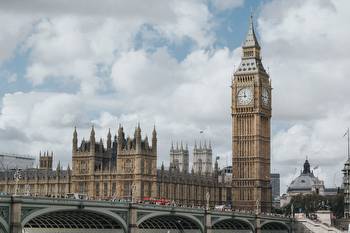Audrey Ferrie: Big change on the cards for gambling industry
The existing Gambling Act 2005 came into force in 2007 but it is widely recognised that current legislation needs a refresh to bring it up to date and to make it fit for the digital age.
The 2005 Act swept aside the “demand test” for betting shops, casinos and bingo halls and arguably created a more open and permissive regime, since supercharged with the advent of online gambling which made betting even more accessible.
Gambling legislation is a reserved matter and in December 2020 Westminster announced a review of the 2005 Act, generating some 16,000 responses to a call for evidence, which will be taken into account in setting out proposed changes.
I’m not a betting woman but the odds are in favour of new laws focusing on protecting the vulnerable, including children, young people in the 18-25 age group and gambling addicts.
Online gambling platforms may have to introduce stricter age verification checks – a lot of the large gambling companies have already spent vast sums on verification software, but this is not compulsory so there could be some form of mandate.
Affordability checks is another hot topic. While it would not be feasible or proportionate, for example, to apply affordability checks on large one-off bets on a classic race like the Grand National, a red flag should be raised with an operator if an online gambler who typically spends £500 a week ups his or her weekly tally to £2000. While arguably more intrusive, it may be that checks are required to verify that a client’s source of funds is above board and sustainable, by delving into areas like employment status, salary and income.
Better sharing of data would enable greater oversight of gambling addicts who often have multiple accounts spread over a number of vendors. A multi-operator self-exclusion scheme, known as Gamstop, goes some way to addressing this issue but it operates on a voluntary basis, whereas compulsory data sharing could facilitate a single customer view solution.
Restrictions on advertising at sports events and sponsorship of sports clubs could be a mainstay of the White Paper. There is a voluntary ban in place on advertising during football matches but this could become more wide-ranging - which will not be welcomed by cash-strapped football clubs, particularly in Scotland’s lower leagues where every penny is a prisoner.
Securing consumer redress from gambling companies who are alleged to have treated a client unfairly (usually refusing to pay out) has always been a thorny issue. While the Independent Betting Adjudication Service can investigate complaints, it has no powers to award compensation, so possibly the introduction of a gambling Ombudsman is on the cards.
The gaming industry recognises its societal responsibilities and accepts the 2005 Act needed to be reviewed, particularly regarding access that vulnerable people have to gambling. At the same time, gambling is a legal activity with many millions safely participating, so it’s about finding a balance between permitting those who can gamble safely and protecting those who are vulnerable.
Audrey Ferrie is a legal director and licensing specialist at Pinsent Masons







.jpg)
























